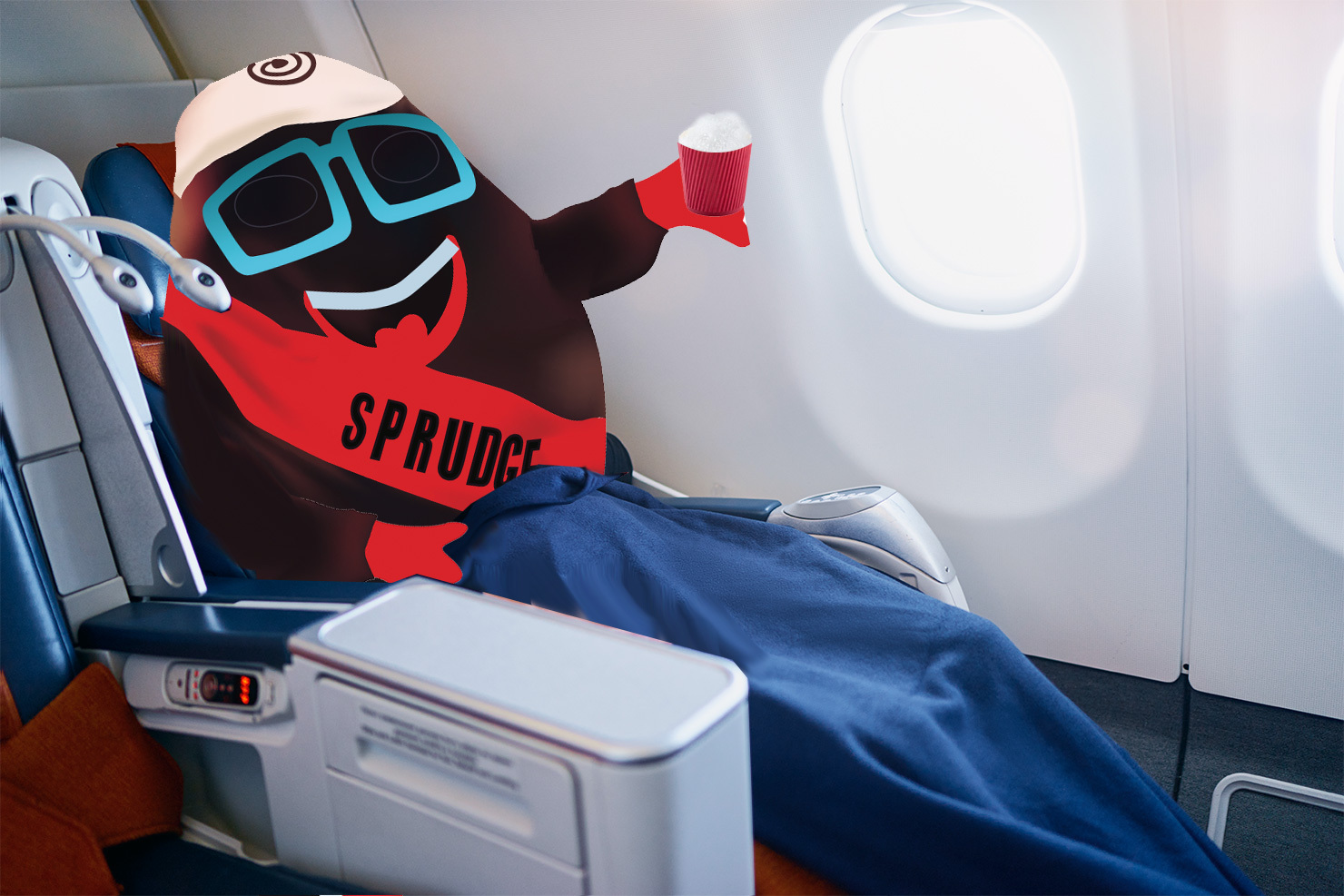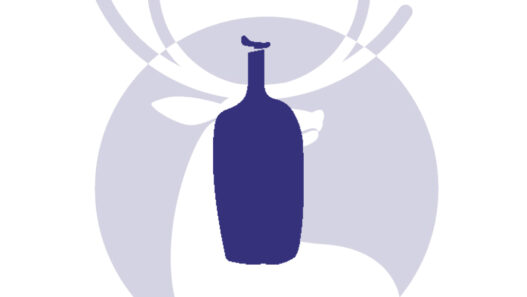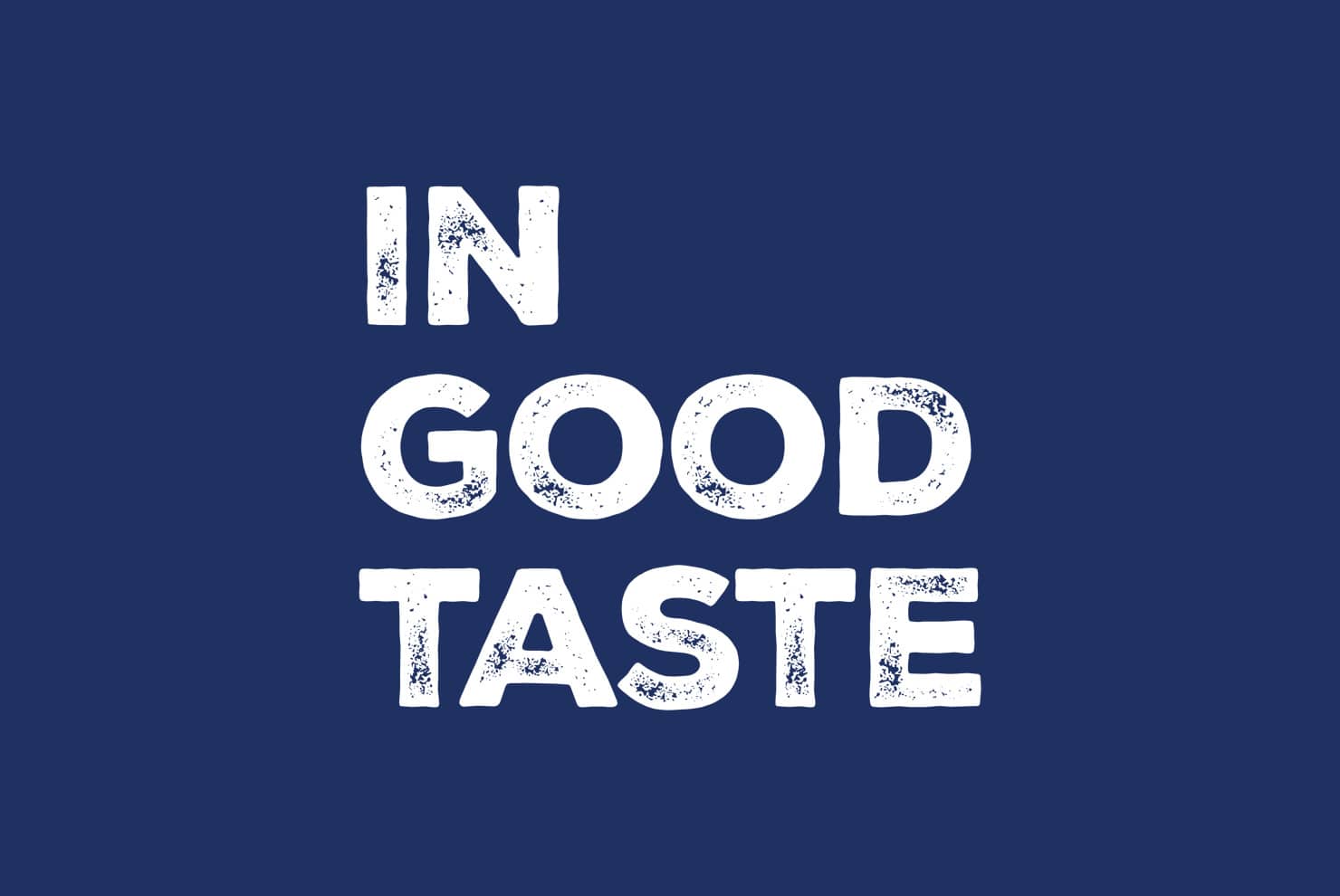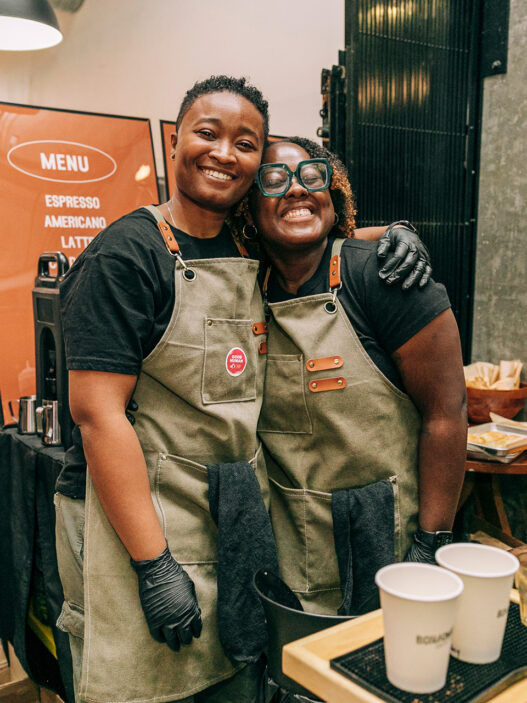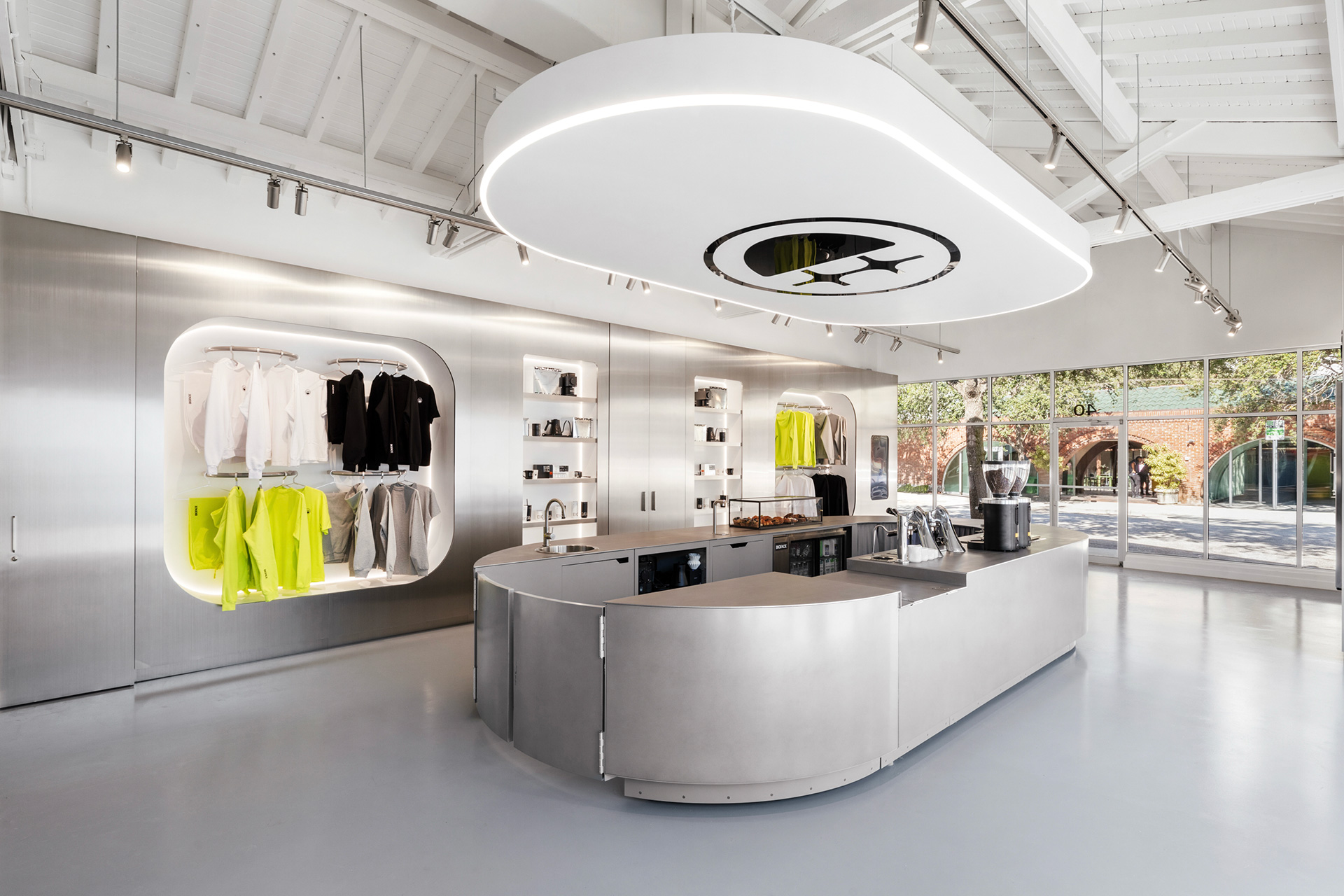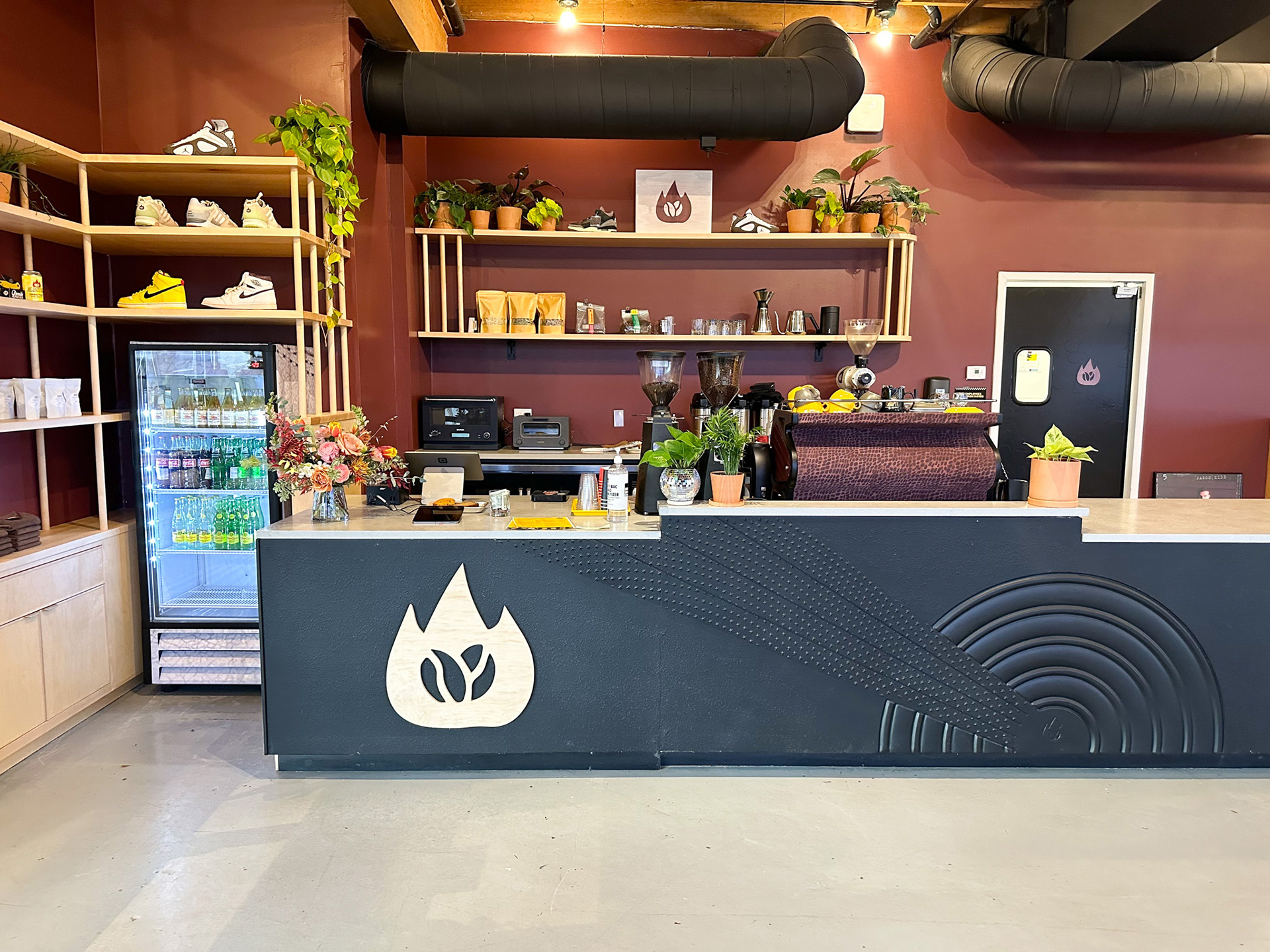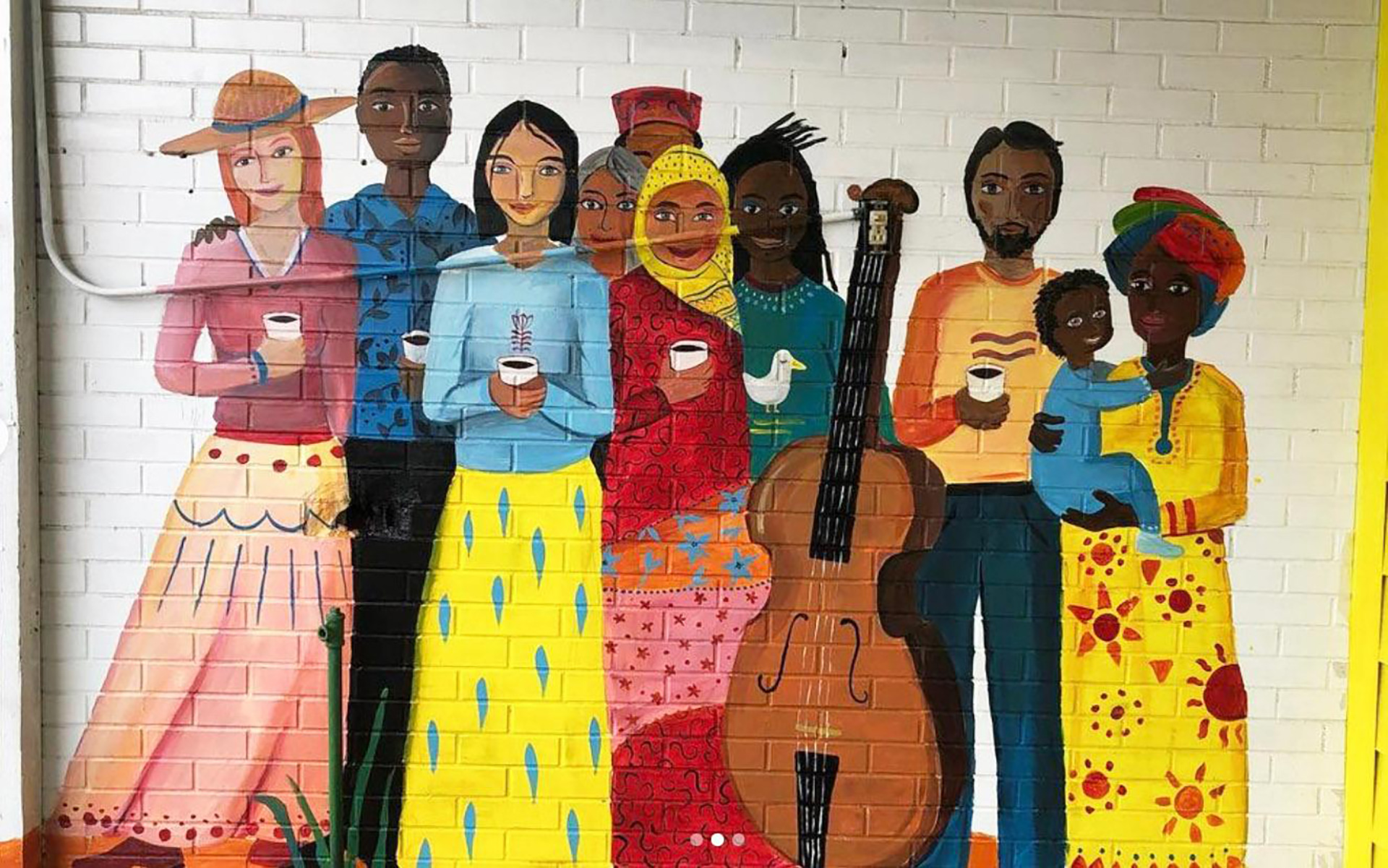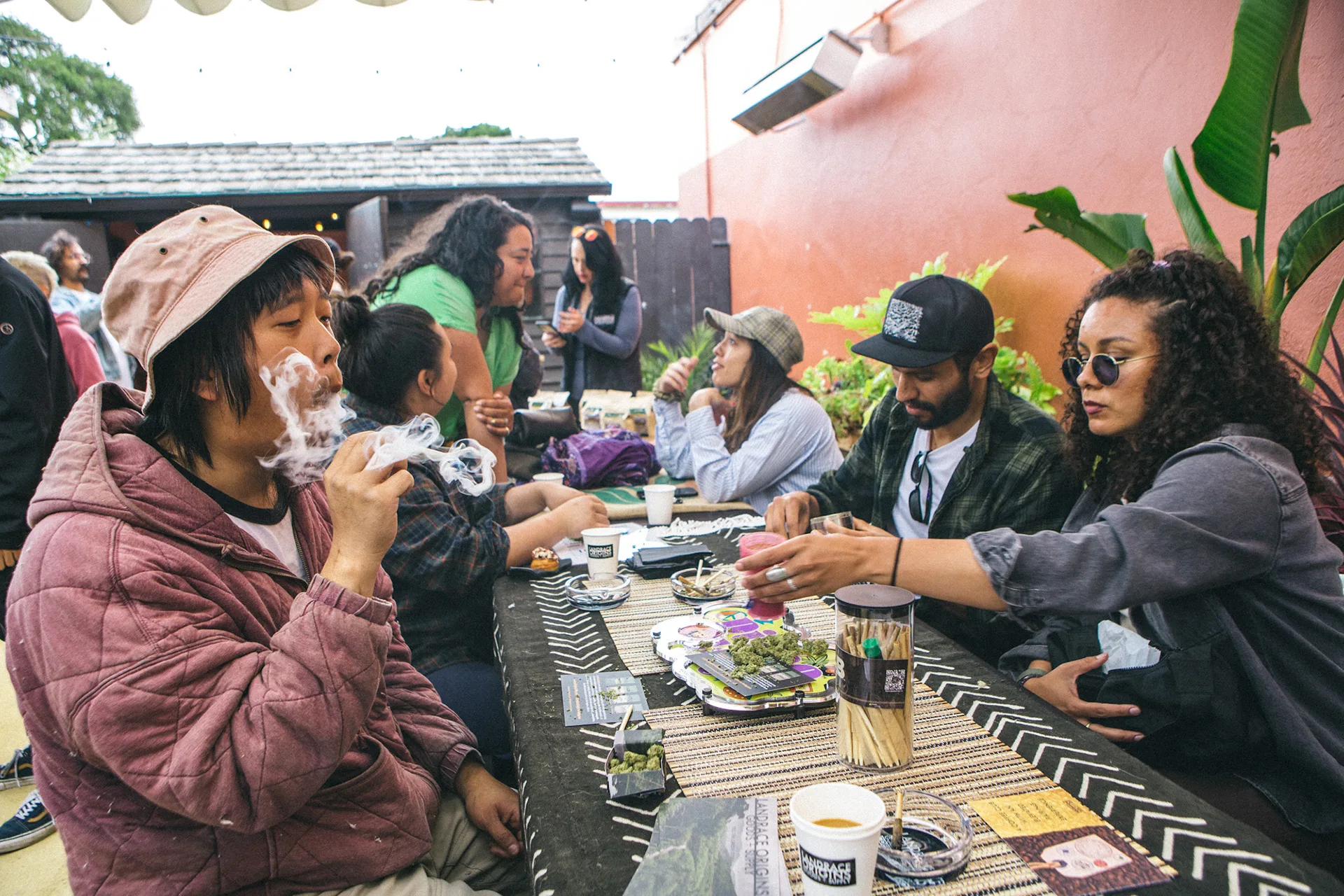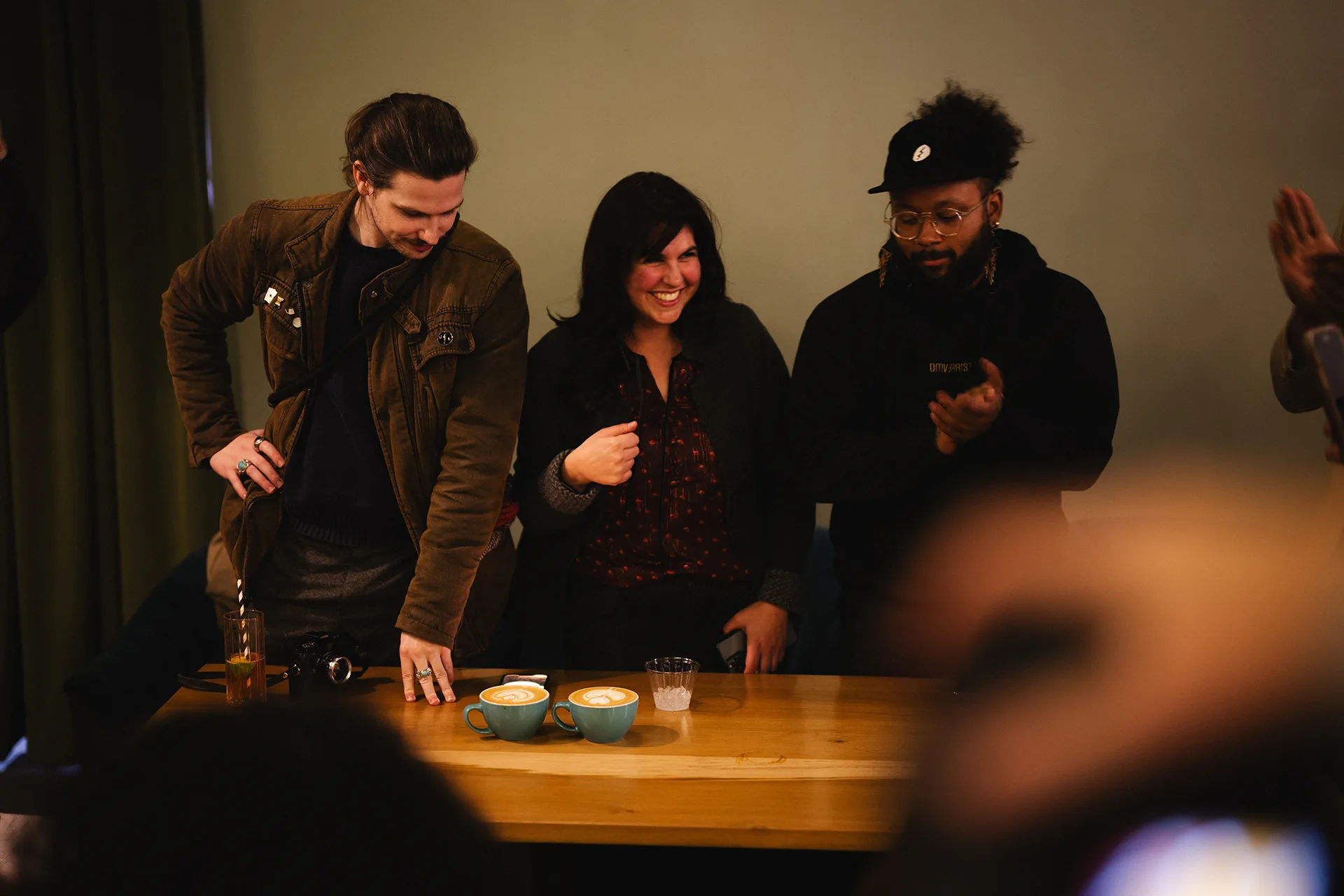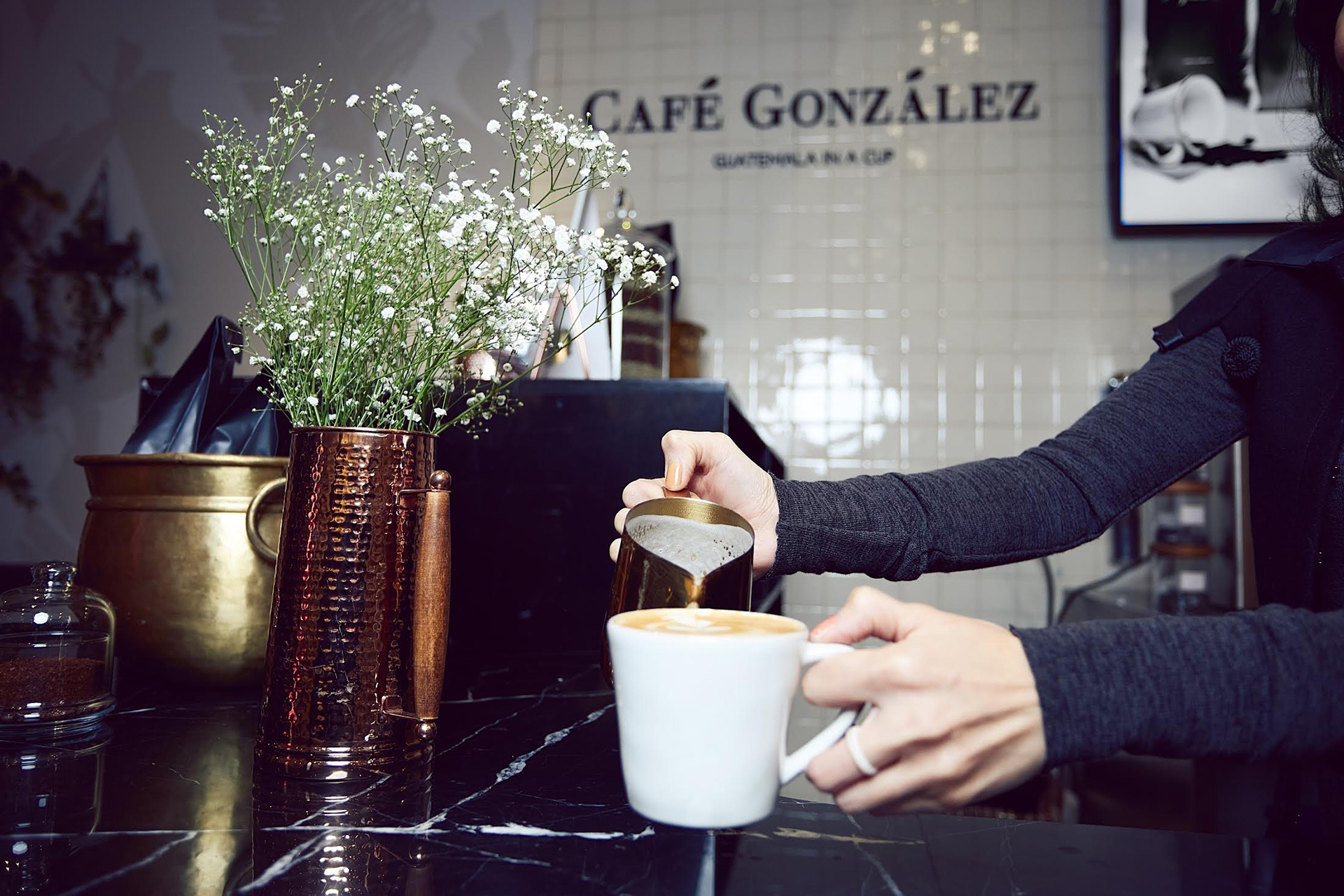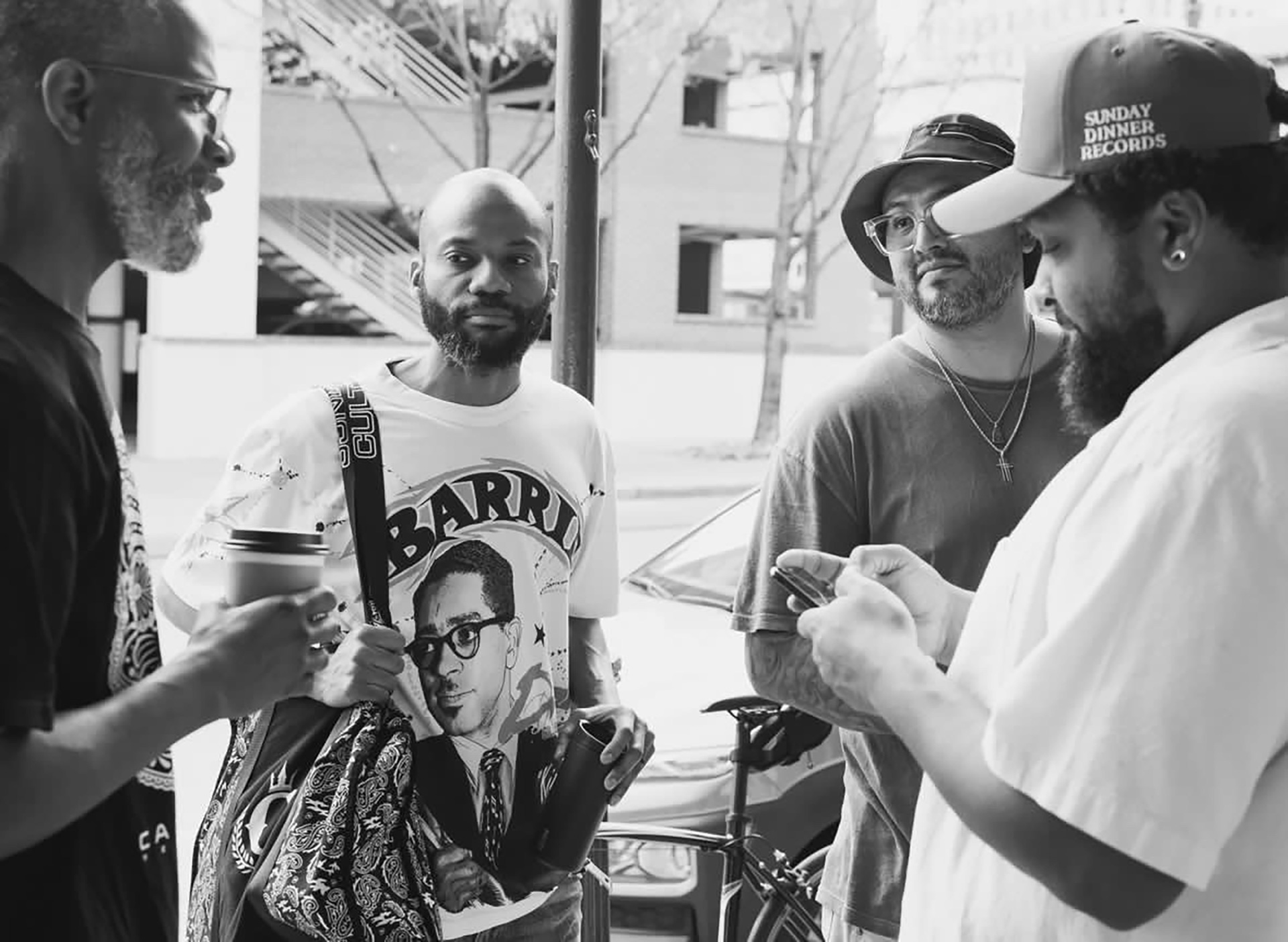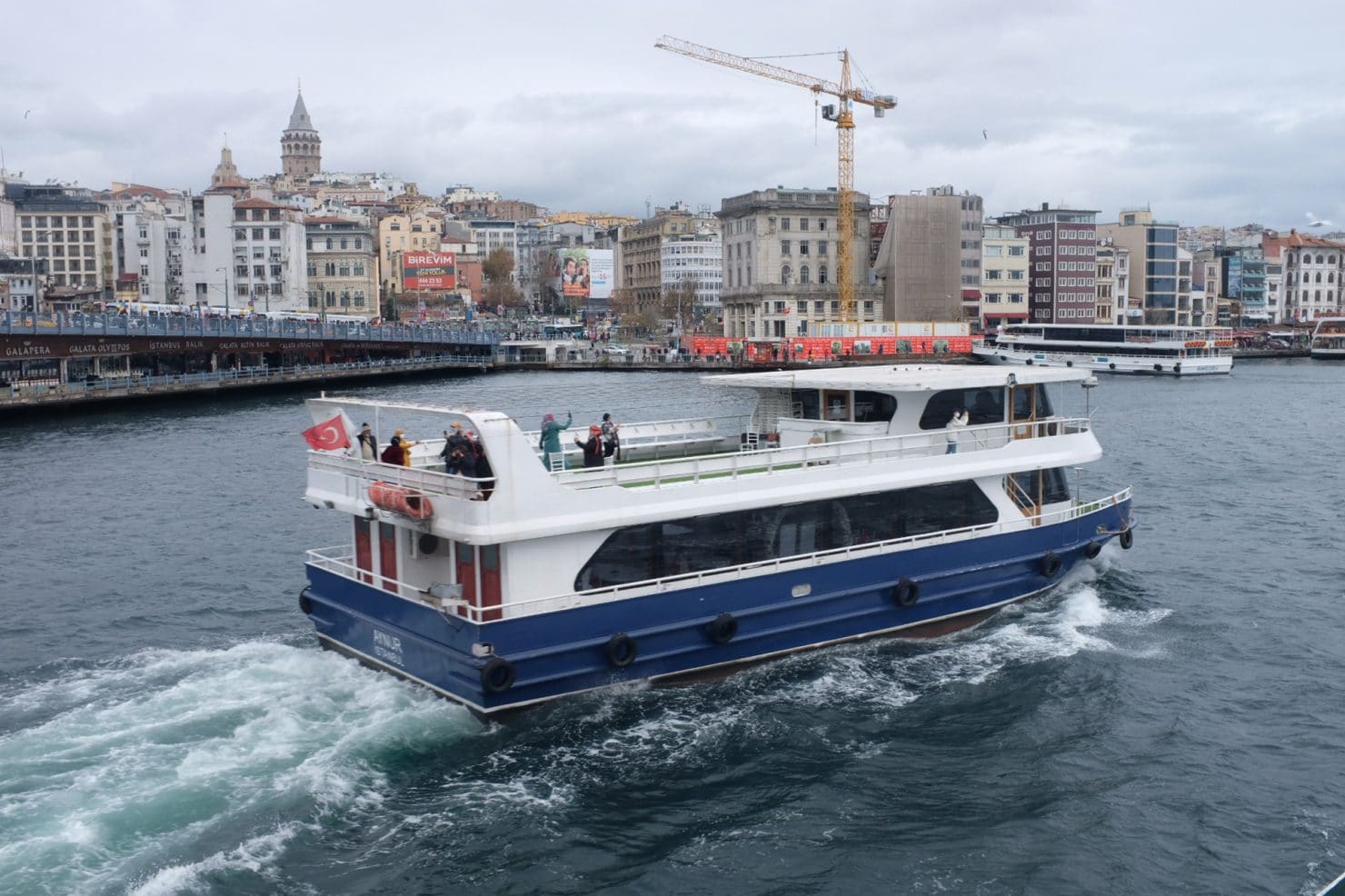
Istanbul may not have invented coffee, but it did invent the coffee shop. Well, at the vary least, the first coffee shop on record opened here in the 1550s. That’s when a beverage that had previously been dispensed by street vendors went brick & mortar, and the world has never been the same.
Whether it’s a cup of thick Turkish coffee served in a traditional kıraathane or a single origin pour-over at one of the city’s excellent specialty cafes, coffee in Turkey is always a social affair. It’s meant to be accompanied by food, friends, and conversation. It’s not just the fuel to power your work; it’s the break from your work. A famous Turkish proverb says, “a cup of coffee is remembered for 40 years”—referring to the power of a shared beverage to form deep friendships.
So what do cafes in Istanbul do when they can’t have dine-in customers?
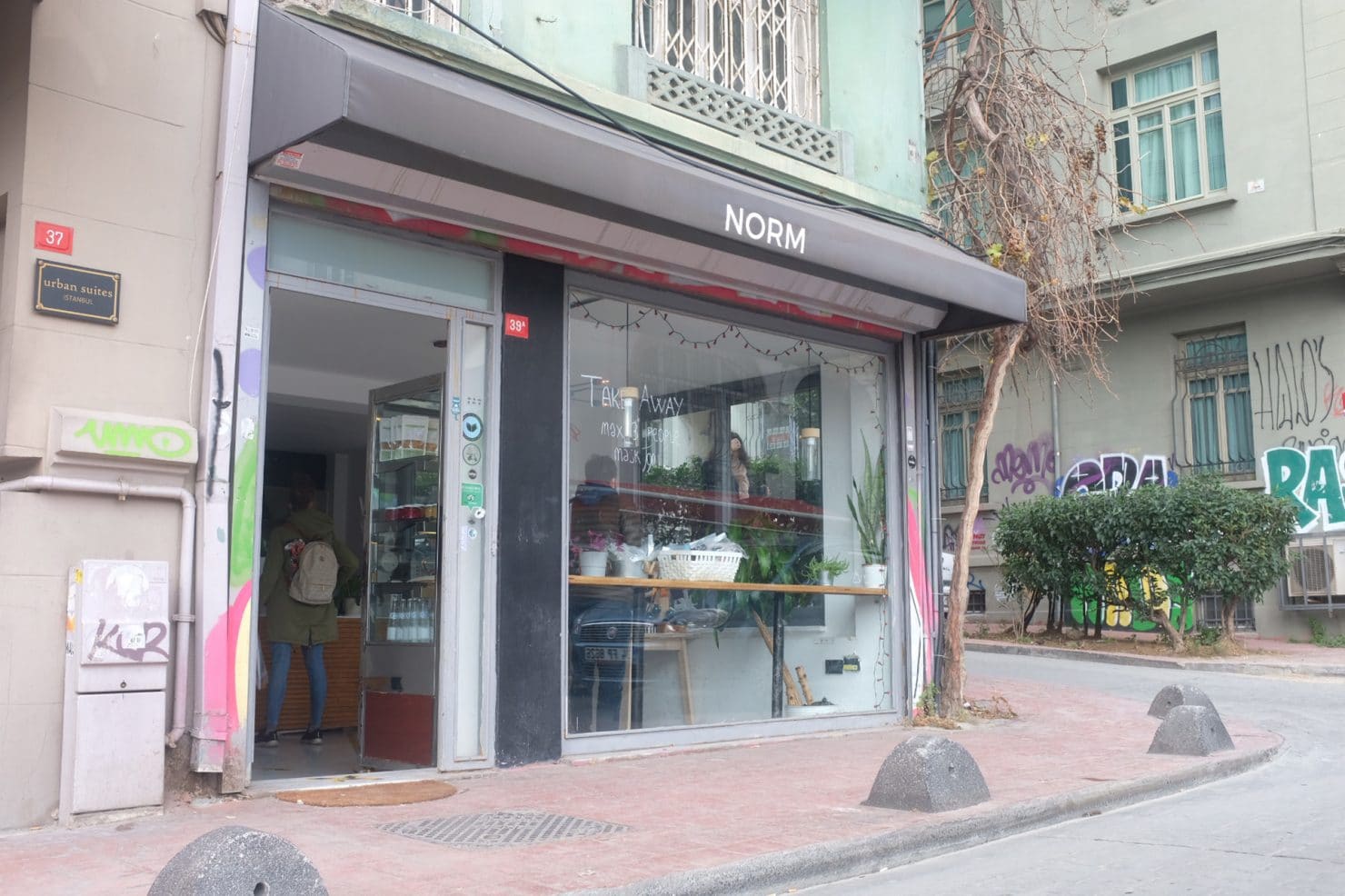
With the second wave of the COVID-19 pandemic continuing to spiral out of control, the Turkish government has put in place weekend lockdowns, weekday curfews, and is restricting which businesses are allowed to operate. In the case of cafes and restaurants, it’s a strict take-away-only policy. Even outdoor seating is banned.
Istanbul cafes are not only scrambling to adjust to the new restrictions and protocols, they’re trying to create a take-away coffee culture from scratch. “People are slowly getting used to it,” says Cem Bozkuş, owner and proprietor of Norm Coffee, a multi-roaster cafe in Istanbul’s Cihangir neighborhood.
Cihangir has long been a popular with foreign correspondents and other expatriates, which means Norm enjoys a clientele more apt to get a take-away coffee. Norm also boasts another advantage: the cafe sits opposite one of Istanbul’s nicer urban parks. “We don’t have many public places,” says Bozkuş.
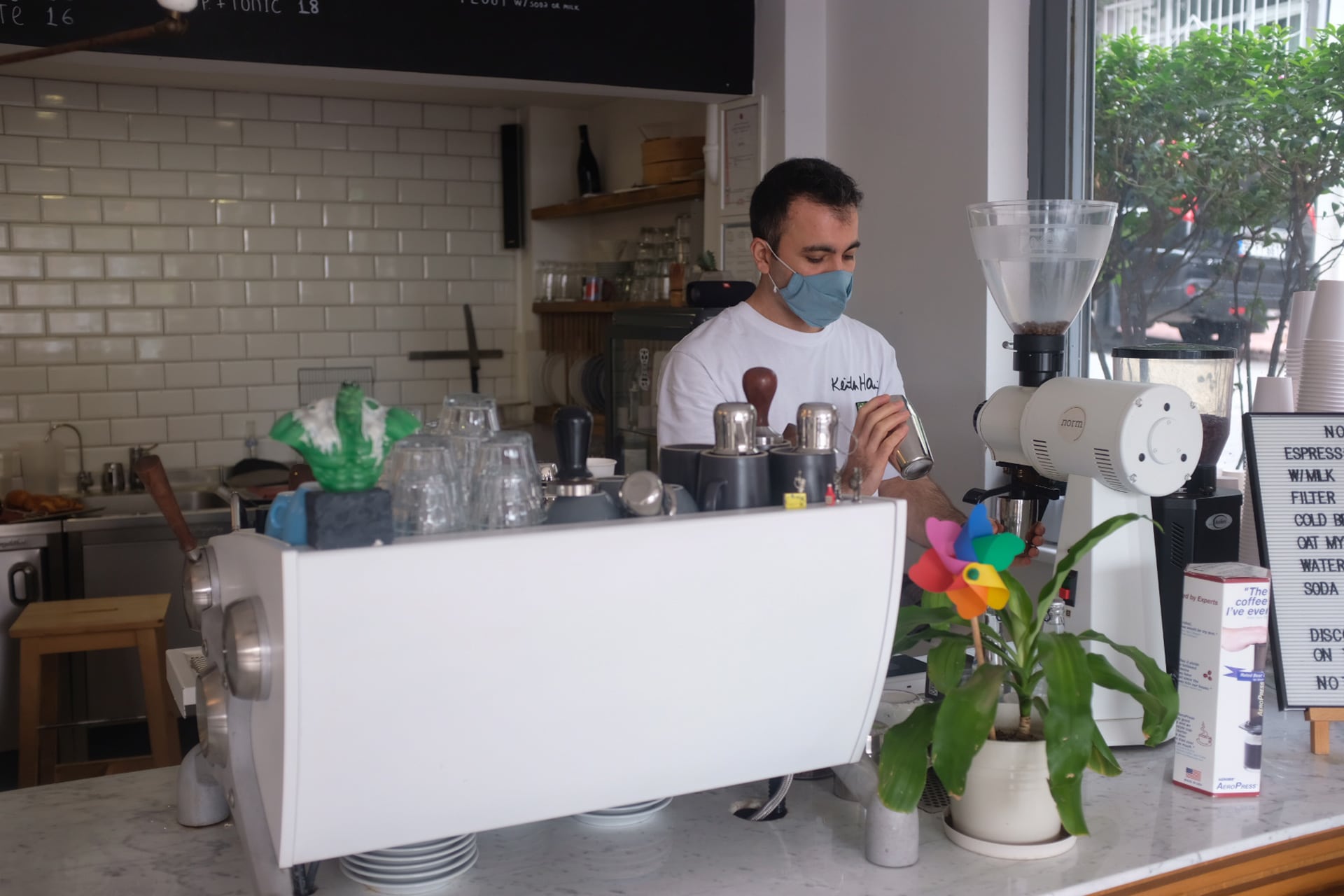
Istanbul’s coffee shops have long stood in for green spaces and parks. Before the pandemic, loitering long after one has finished their coffee was accepted if not expected. But with tables taped off, and chairs piled on top of each other, Istanbulites have taken to huddling under awnings or sitting on curbs and stairs, take-away cups in hand.
Anecdotally, one sees more pedestrians than ever walking around with take-away coffees, but the small uptick in take-away sales falls well short of lost dine-in revenue.
“For most people, it’s not enough to go out and grab a coffee,” says Burçin Ergünt, co-owner of Borderline Coffee in Istanbul’s Nişantaşı neighborhood. Ergünt enlisted the help of local croissant bakers Origami to completely revamp the shop. Together, they remodeled and rebranded the cafe to be food-forward, moving the espresso machine to the back bar and replacing Borderline’s signage with Origami’s.
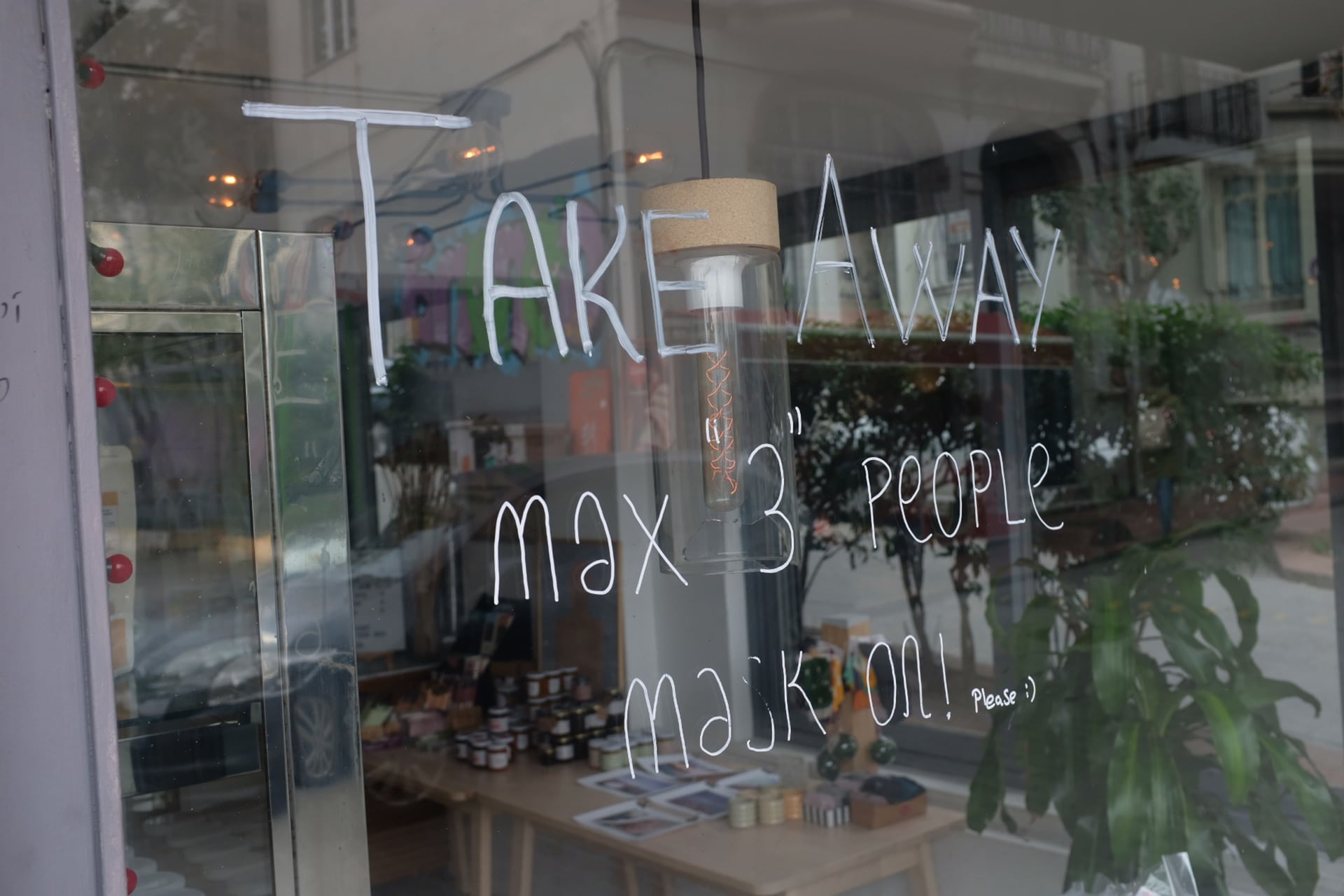
“We solved one of our main problems: we’re selling something for hungry people. If you want to have a fancy breakfast, you still order a take-away croissant,” says Ergünt. “It creates the urgency to go out.”
The move was inspired in part by a Turkish-language podcast that Ergünt produced during the first wave of lockdowns, rather straight-forwardly titled Sosyal Hayata Nasıl ve ne Zaman Geri Dönecegiz? (When and How Will we Return to a Social Life?) Ergünt interviewed Turkey’s top chefs and restauranteurs and found with the exception of a take-away burger joint, everyone was facing the same issues.
“They are trying different things but they still have not solved the main problem: they can’t pay their rent. They can’t keep their staff,” says Ergünt. “You can’t deliver a meyhane experience to your home. You can’t deliver a hamam experience.”
You can, however, deliver whole bean coffee, and thanks to a partnership with a private courier service, Borderline can promise two-hour delivery to anywhere in Istanbul—a city of over 15 million people. “We’re selling enough to cover our costs, but coffee sales are down,” says Ergünt. “Without food, we couldn’t survive.”
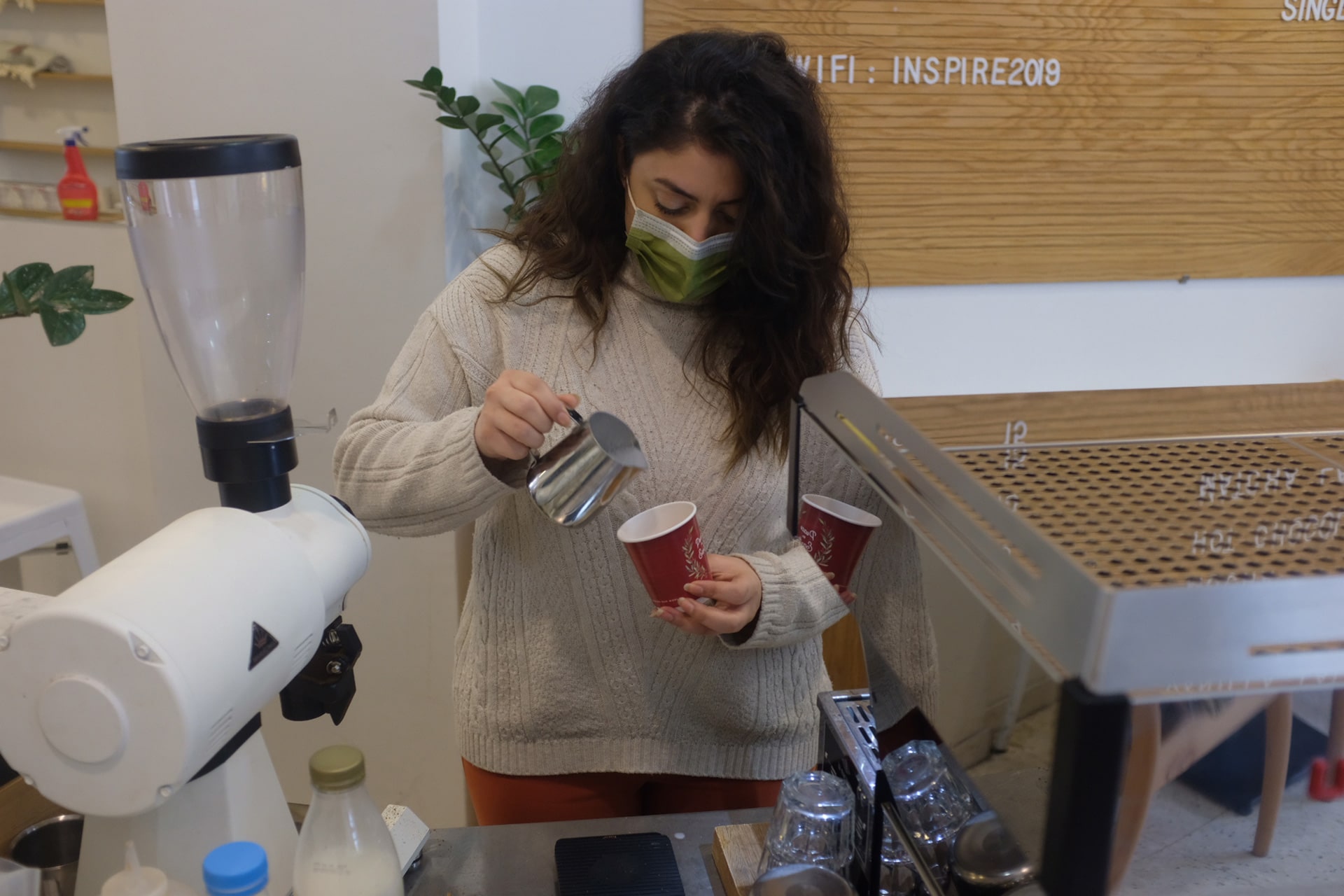
Across the Bosphorus Straight in the district of Kadıköy, Story Coffee has encountered another challenge: customers who ask to break the rules. “People are sad. They say there’s nowhere to talk with my friends and it’s cold outside,” says Mariye Tüncel, manager of Story Coffee, a roaster-retailer with two cafes in Kadıköy. “Turkish people like to sit and chat. How can we provide that from afar?” she says. To try to stay connected with their customers, Story’s staff has started including hand-written notes with online orders.
Another key partnership has been with third party delivery services, such as Getir and Yemek Sepeti. Turkey was an early innovator in digital food delivery, with Yemek Sepeti launching online ordering in 2000. So many orders have come through these services, the baristas at Story have become friends with the scooter-riding couriers. “It’s surprisingly and nice, we’re really impressed with them,” says Tüncel.
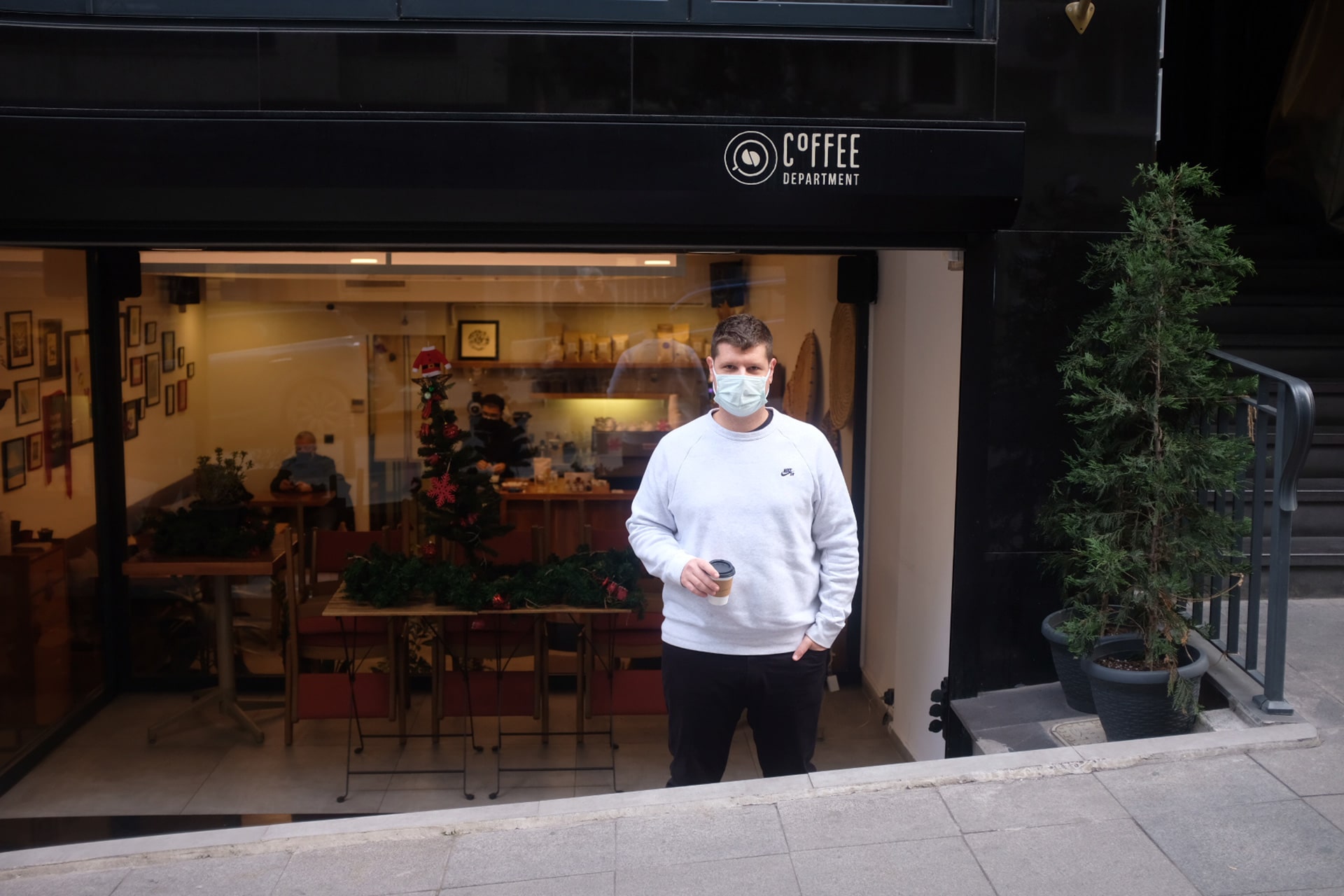
Metin Benbasat, owner of Coffee Department, was initially skeptical of partnering with a third party delivery service, but reluctantly came around. “They take a really high commission, but there’s nothing we can do about it,” he says. “People prefer to order from these services.”
For Coffee Department, the pandemic has meant delaying plans to expand their roastery and open a new retail location. Instead, Benbasat is using the lull in business as a chance to focus on improving quality control and reevaluate their procedures. “We’re constantly looking for new ideas,” says Benbasat. “We’re thinking about how we can improve and better support our employees.”
Although Coffee Department is still planning to move forward with a third cafe in 2021, for now they’re playing it safe. One thing, Benbasat says, is certain: the need to better accommodate take-away sales will change the way they design future cafes.
“Take-away culture will definitely grow in Turkey. It’s just getting started, to be honest,” says Benbasat. “I’m already thinking for future cafes, how will take-away work?”
Michael Butterworth is a coffee educator and consultant based in Istanbul, Turkey. Read more Michael Butterworth for Sprudge.






